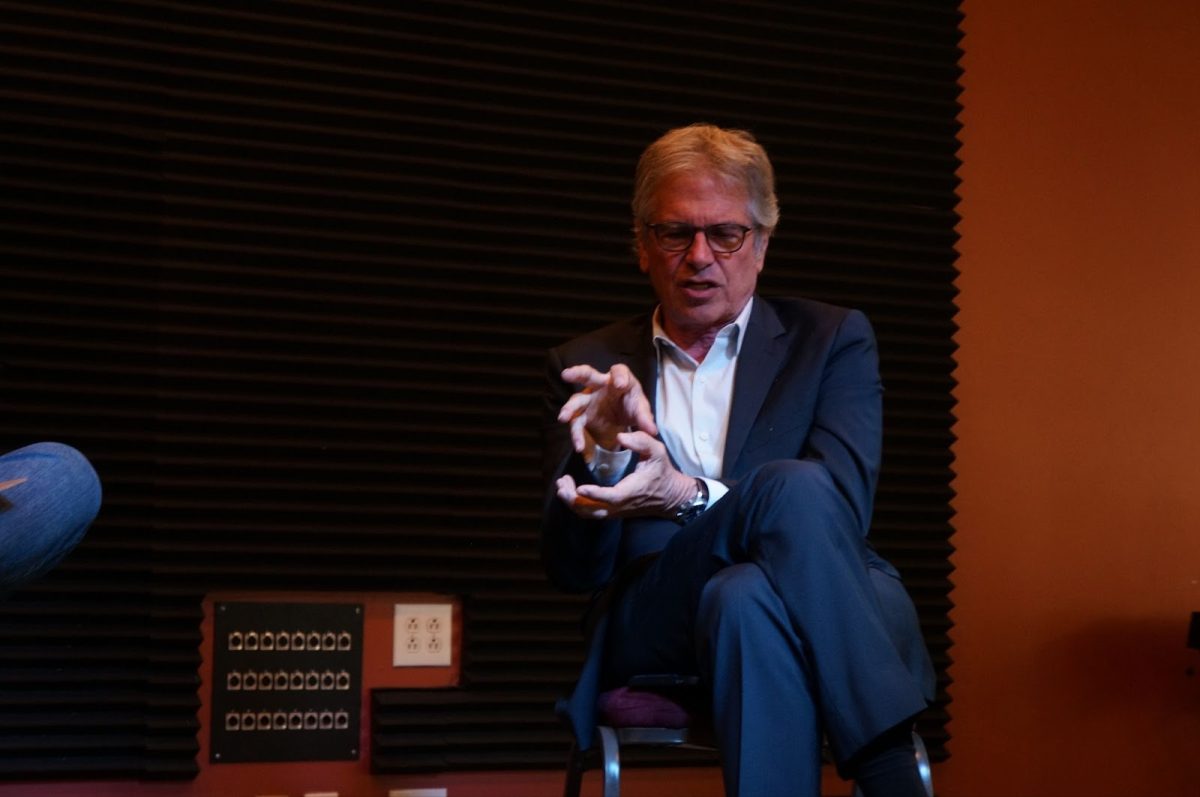On Sept 24. spirits were high in the Carnegie Room of Hege Library when W. Scott Poole, professor of history at the College of Charleston, spoke about the work of H.P. Lovecraft and his influence on the world.
Many people excited about both Lovecraft and the horror genre attended the event, interested to hear how closely the two are connected.
“(The best part of the talk was) just hearing about how Lovecraft’s work and the monsters he created have inspired all these horror authors that came afterward to interpret those ideas differently,” said Hank Groon, a junior who attended the event.
Other people on campus were very excited about the event before it even began. Many of them were greatly interested in the subjects of Lovecraft and Cthulhu.
“(Lovecraft) has created this wonderful mythology that expands time and has all these really interesting creatures and deities in this larger universe,” said Antoine Williams, assistant professor of art.
One thing that many students who attended the event enjoyed was how Poole goes about talking about academic concepts.
“I liked how he explained very intellectual topics in a very commonplace way,” said sophomore Katie San Filippo.
Heather Hayton, professor of English and someone who helped bring Poole to Guilford, also recognized his gift for making hard subjects easier.
“One of the reasons why I’m so glad that we got Scott here is that he makes talking about hard and deep intellectual debate easy for people to engage in,” she said. “He welcomes us to a conversation that can be hard and inconclusive and ongoing. That’s what the best kind of scholar does.”
The talk itself was focused on two main subjects: the way in which Lovecraft’s racism is a reflection of the racism of white America and the idea that Lovecraft created a new genre of horror called “cosmicism,” focused on the insignificance of the human race in the universe.
“What I hope to get across tonight is that there are things we can learn about white American racism through reading Lovecraft and understanding Lovecraft,” said Poole before his talk.
Lovecraft’s racism is a greatly discussed topic, with many people refusing to acknowledge its existence and many others encouraging its acknowledgement.
“(There is this idea) that you can’t talk about how someone is racist if you like them,” said Niall Donegan, a senior who has met Poole in the past. “Scott Poole has undermined a lot of that and not shied away from those realities, which is really cool.”
The second subject, cosmicism, focused on the idea that nothing in human existence ultimately matters because there are things in the universe much bigger than ourselves. This is what many consider to be truly terrifying.
“We would not be able to handle the supernatural,” said Poole during the talk. “It would tear away from us our sense of safety in the world.”
According to Poole, it is when we consider these two subjects together that something can really be discovered about the way our world works.
“What we cannot buy into is the notion that things like nationalism and hierarchies based on race and economics, and power structures in general, hold any kind of ultimate meaning,” said Poole at the end of his lecture. “If you take Lovecraft’s tales seriously, they don’t even hold a partial meaning. They are illusions. They are the barricades that very frightened people have erected against the darkness.”
Whether one agrees with the idea of cosmicism or not, the idea that power structures and systems of oppression are illusions is a powerful one.









